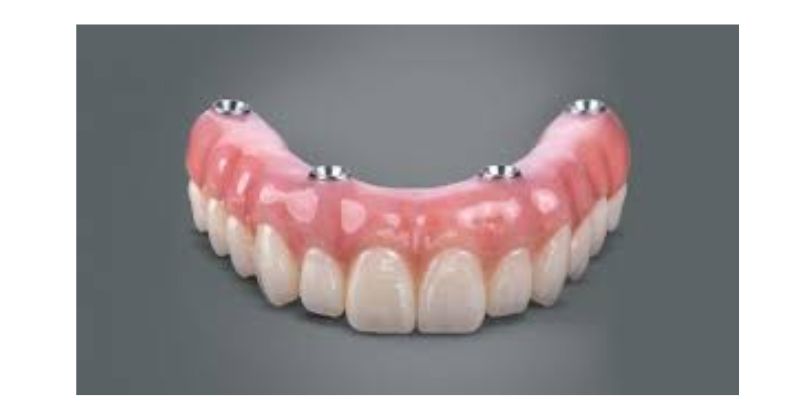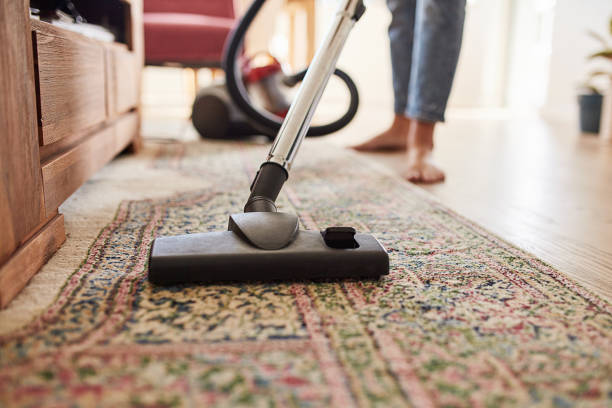
Achieving radiant, healthy skin is a common goal for many. Your skin is your body’s largest organ and serves as a protective barrier, so taking care of it is crucial. Whether you’re battling acne, sensitivity, or simply looking to maintain a youthful glow, these skincare tips will help you develop a routine tailored to your unique needs.
Understanding Your Skin Type
Before diving into specific skincare tips, it’s essential to understand your skin type. This knowledge allows you to select the right products and treatments that will work best for you. The main skin types are:
Elocon Cream (mometasone furoate) is a prescription-strength topical corticosteroid used to treat various inflammatory skin conditions, including eczema, psoriasis, and dermatitis. It works by reducing inflammation, redness, and itching, providing relief from discomfort, and helping to improve the skin’s appearance.
- Normal Skin: is balanced, not too oily or dry, with few imperfections and a radiant complexion.
- Oily Skin: Characterized by excess oil production, enlarged pores, and a shiny complexion. Prone to acne and blackheads.
- Dry Skin: Lacks moisture and oil, leading to a dull, rough texture and increased sensitivity. May have visible lines and flaking.
- Combination Skin: A mix of oily and dry areas, typically with an oily T-zone (forehead, nose, and chin) and dry cheeks.
- Sensitive Skin: Easily irritated, prone to redness, itching, and reactions to certain products or environmental factors.
Establishing a Skincare Routine
Creating a consistent skincare routine is key to achieving and maintaining healthy skin. Here’s a step-by-step guide to building an effective regimen:
1. Cleansing
Cleansing removes dirt, oil, and impurities from your skin, preventing clogged pores and breakouts. Choose a cleanser suitable for your skin type:
- Normal Skin: Gentle, hydrating cleansers that maintain the skin’s natural balance.
- Oily Skin: Foaming or gel cleansers that control excess oil and prevent acne.
- Dry Skin: Creamy, non-foaming cleansers that hydrate and soothe.
- Combination Skin: Balanced cleansers that address both oily and dry areas.
- Sensitive Skin: fragrance-free, hypoallergenic cleansers that minimize irritation.
Tip: Cleanse your face twice daily, in the morning and evening, to keep your skin fresh and clean.
2. Toning
Toners help remove any remaining impurities, balance your skin’s pH, and prepare it for the next steps. Choose alcohol-free toners with soothing ingredients like chamomile, rose water, or witch hazel.
Tip: Apply toner with a cotton pad or your hands, gently patting it into your skin.
3. Exfoliating
Exfoliation removes dead skin cells, promoting cell turnover and a brighter complexion. However, over-exfoliation can damage your skin, so it’s important to exfoliate properly:
- Normal Skin: Exfoliate 1-2 times a week.
- Oily Skin: Exfoliate 2-3 times a week to prevent clogged pores.
- Dry Skin: Exfoliate once a week to avoid irritation.
- Combination Skin: Exfoliate 1-2 times a week, focusing on oily areas.
- Sensitive Skin: Exfoliate once every 10–14 days with gentle products.
Tip: Use gentle scrubs with fine particles or chemical exfoliants like AHAs (alpha-hydroxy acids) and BHAs (beta-hydroxy acids).
4. Moisturizing
Moisturizing is crucial for all skin types, as it hydrates and protects your skin. Choose a moisturizer based on your skin type:
- Normal Skin: Lightweight, hydrating formulas.
- Oily Skin: Oil-free, non-comedogenic moisturizers.
- Dry Skin: Rich, emollient creams or ointments.
- Combination Skin: Lightweight, gel-based moisturizers for the T-zone and richer creams for dry areas.
- Sensitive Skin: Fragrance-free, hypoallergenic moisturizers with soothing ingredients like aloe vera or ceramides.
Tip: Apply moisturizer twice daily, after cleansing and toning.
5. Sun Protection
Sun exposure is a leading cause of premature aging and skin damage. Protect your skin by applying a broad-spectrum sunscreen with SPF 30 or higher every day, even on cloudy days.
Tip: Reapply sunscreen every two hours when outdoors, and wear protective clothing and accessories like hats and sunglasses.
Addressing Specific Skin Concerns
Different skin concerns require targeted treatments. Here are some common issues and how to manage them:
Acne
Acne can be frustrating and challenging to manage. Here are some tips to help combat acne:
- Cleanse Regularly: Use a gentle, foaming cleanser to remove excess oil and prevent clogged pores.
- Exfoliate Wisely: Use salicylic acid or benzoyl peroxide products to exfoliate and treat acne.
- Spot Treatments: Apply spot treatments with ingredients like benzoyl peroxide, salicylic acid, or tea tree oil to target pimples.
- Avoid Touching Your Face: Touching your face can transfer bacteria and oil, worsening acne.
- Use Non-Comedogenic Products: Choose makeup and skincare products labeled as non-comedogenic, meaning they won’t clog pores.
Sensitivity and Redness
Sensitive skin can react to various factors, causing redness and irritation. Follow these tips to soothe sensitive skin:
- Use Gentle Products: Opt for fragrance-free, hypoallergenic products with minimal ingredients.
- Patch Test New Products: Test new products on a small area of skin before applying them to your face.
- Avoid Harsh Ingredients: Steer clear of alcohol, sulfates, and synthetic fragrances that can irritate sensitive skin.
- Hydrate and Soothe: Use moisturizers with calming ingredients like aloe vera, chamomile, and colloidal oatmeal.
- Sun Protection: Always wear sunscreen to protect sensitive skin from UV damage.
Anti-Aging
To maintain a youthful complexion, incorporate these anti-aging tips into your routine:
- Use Retinoids: Retinoids, such as tretinoin, are effective in reducing fine lines and wrinkles. Start with a lower concentration and gradually increase usage.
- Hydrate: Keep your skin hydrated with hyaluronic acid serums and rich moisturizers.
- Antioxidants: Use products with antioxidants like vitamin C and E to protect your skin from free radical damage.
- Sun Protection: Sunscreen is crucial in preventing premature aging caused by UV exposure.
- Healthy Lifestyle: Maintain a balanced diet, stay hydrated, exercise regularly, and get enough sleep to support overall skin health.
The Importance of a Healthy Lifestyle
Your lifestyle choices have a significant impact your skin’s health. Here are some essential lifestyle tips to complement your skincare routine:
Diet and Hydration
- Eat a Balanced Diet: Consume a variety of fruits, vegetables, lean proteins, and healthy fats. Foods rich in antioxidants, vitamins, and minerals support skin health.
- Stay Hydrated: Drink plenty of water to keep your skin hydrated and flush out toxins.
- Limit Sugary and Processed Foods: Excess sugar and processed foods can contribute to inflammation and breakouts.
Sleep
- Get Enough Sleep: Aim for 7-9 hours of quality sleep each night. Your skin repairs and regenerates itself while you sleep.
- Establish a Sleep Routine: Maintain a regular sleep schedule and create a relaxing bedtime routine to improve sleep quality.
Stress Management
- Practice Relaxation Techniques: Techniques like meditation, deep breathing, and yoga can help manage stress, which can negatively impact your skin.
- Exercise Regularly: Physical activity increases blood flow, delivering oxygen and nutrients to your skin cells.
Skincare Tips for Different Seasons
Your skin’s needs change with the seasons, so it’s important to adjust your routine accordingly: Tretinoin cream, a derivative of vitamin A, is renowned for its powerful ability to treat acne and reduce signs of aging. Incorporating tretinoin into your skincare routine can help you achieve radiant, healthy skin.
Spring
- Exfoliate: As the weather warms up, gently exfoliate to remove dead skin cells and reveal fresh skin.
- Lightweight moisturizers: Switch to lighter moisturizers as humidity increases.
- Sun Protection: Increase your sun protection efforts as you spend more time outdoors.
Summer
- Sunscreen: Apply a broad-spectrum sunscreen with SPF 30 or higher, and reapply every two hours.
- Hydrate: Use lightweight, hydrating serums and gels to keep your skin moisturized without feeling heavy.
- Oil Control: Use mattifying products to control excess oil and shine.
Fall
- Repair Summer Damage: Use products with antioxidants and retinoids to repair any sun damage from the summer.
- Transition to Richer Moisturizers: As the weather cools down, start using richer moisturizers to combat dryness.
- Exfoliate Gently: Continue gentle exfoliation to remove dead skin cells.
Winter
- Hydration: Use rich, emollient moisturizers to combat dry, cold air.
- Humidifiers: Consider using a humidifier to add moisture to the air in your home.
- Gentle Cleansing: Use gentle, non-stripping cleansers to avoid further drying out your skin.
- Incorporating Professional Treatments
In In addition to your daily skincare routine, professional treatments can enhance your skin’s health and appearance. Here are some treatments to consider:
Facials
Professional facials can deeply cleanse, exfoliate, and hydrate your skin. Regular facials can help address specific concerns like acne, aging, and sensitivity.








